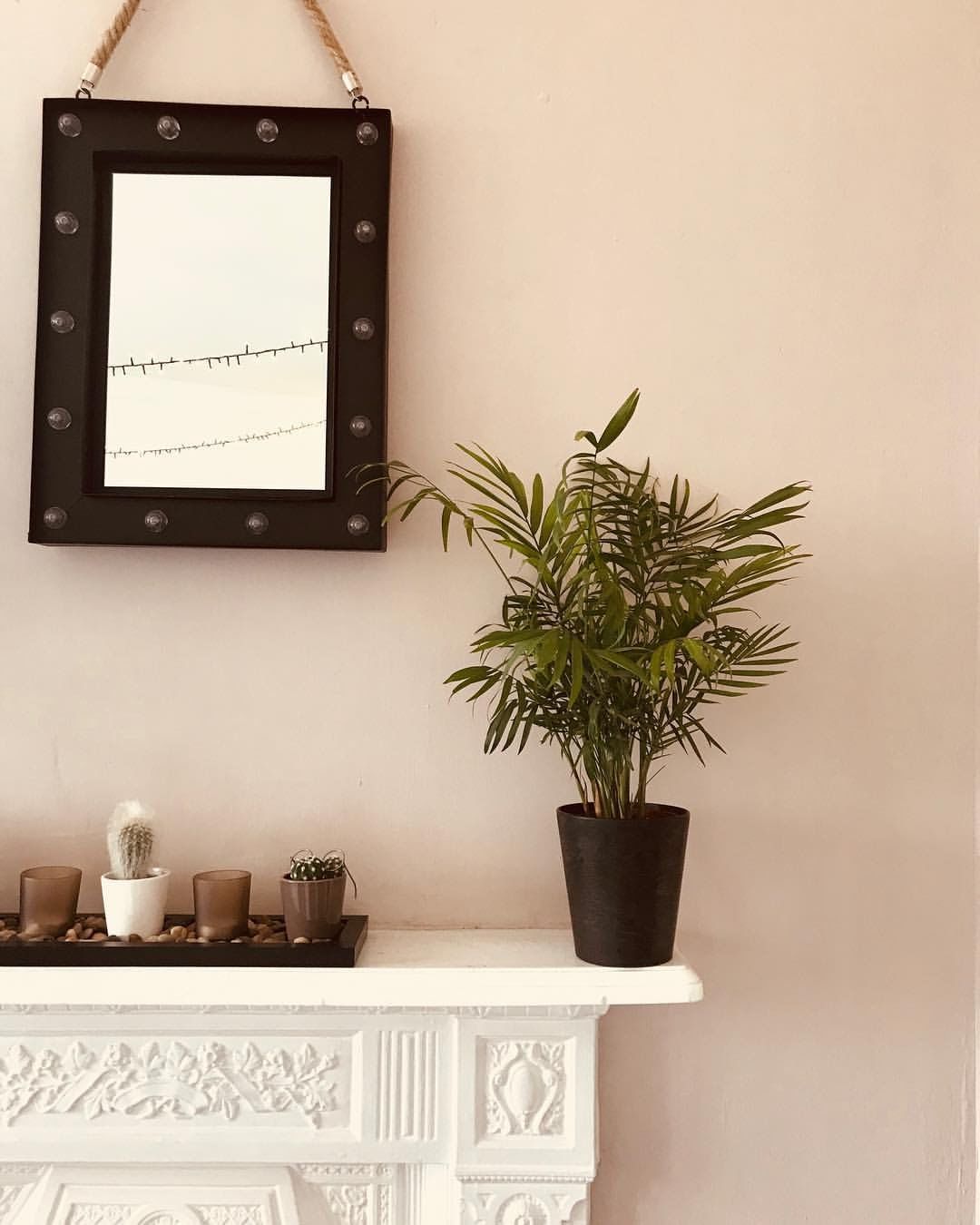Fatsia japonica 'Spider's Web', Boston & Maidenhair Ferns, Dracaena sanderiana & ZZ Plants.
Contents
- How to Get a Plant to Thrive in a Dark Corner
- Top 10 Shade-Tolerate Species
- Other Low Light Plants
Need the answer to a specific plant query? Book a 1-to-1 video call with Joe Bagley, the website's friendly author, to overcome and address your niggling problem! Available on iMessage, WhatsApp, Facebook Messenger & more.
1. How to Get a Plant to Thrive in a Dark Corner
There are several ways to get a houseplant thriving in a dark environment, but first, you've got to select shade-tolerate species. There's little point in opting for a plant that requires partial sunlight throughout the day, as they'll quickly show signs of distress after a few weeks. The list below consists of ukhouseplants' five top tips to help a houseplant survive even in the darkest of rooms.
1. Reduce the frequency of irrigations - Due to the lower rates of photosynthesis, the plant won't require as much water-uptake through the roots, especially over the winter months. Keeping the soil slightly more on the dry side will alleviate both the risk of root rot and soil mould - the two most significant issues with dark locations.
2. Dust the leaves regularly - Like other domestic surfaces, the leaves will slowly be covered with a thin layer of dirt. This will not only reduce its light-capturing efficiency, but it'll also weaken the overall health of the plant due to the lack of photosynthetic energy. Wash the foliage by saturating in the shower or with a gentle hose at monthly intervals to alleviate the problem.
3. Never situate a diseased or weakened plant in a shady spot as the combination of this and lower light levels can easily result in death. When a specimen is under stress, it's essential to give it the basic values of proper cultivation - bright indirect light, a good level of soil moisture and nutritious compost. Only ever use a strong, disease-free specimen in shady locations to avoid disappointment.
4. Regular fertilisations are essential, as most of the thirteen primary nutrients are involved in photosynthesis and respiration. A forgetful gardener who doesn't supplement the soil regularly will promote a nutrient deficiency, that can lead to a weakened specimen and even death. Always follow the recommended guidelines to fertilisation, but if you're unsure of which products to use, click here!
5. Keep an eye out for pests, especially with Mealybugs and Spider Mite. Allowing an infestation to thrive on a dark specimen will add further stress to its overall wellbeing. They'll suck the chlorophyll (the green chemical that is considered the 'engine' for photosynthesis) out of the leaf for their own needs. Again, like with Step 3, only use problem-free specimens to decorate a shady corner, as the risk of decline and death is only a step away!
N. B. - Dark settings will come at the cost of variegations. As photosynthesis requires chlorophyll (green foliage) to produce storable sugars, its patterns will begin to fade over a few months. If you're not bothered with this change, don't worry; but for those who crave the variegated texture, provide a bright, indirect location for maximum patterns.
2. Top 10 Shade-Tolerate Species
N. B. - Those which DON'T state that they're pet-friendly are unfortunately toxic if eaten. The 'Life-Expectancy & Size' section is just a projection of the average age for the specimen - most plants can easily surpass this when correctly cultivated.
1. Peace Lilies
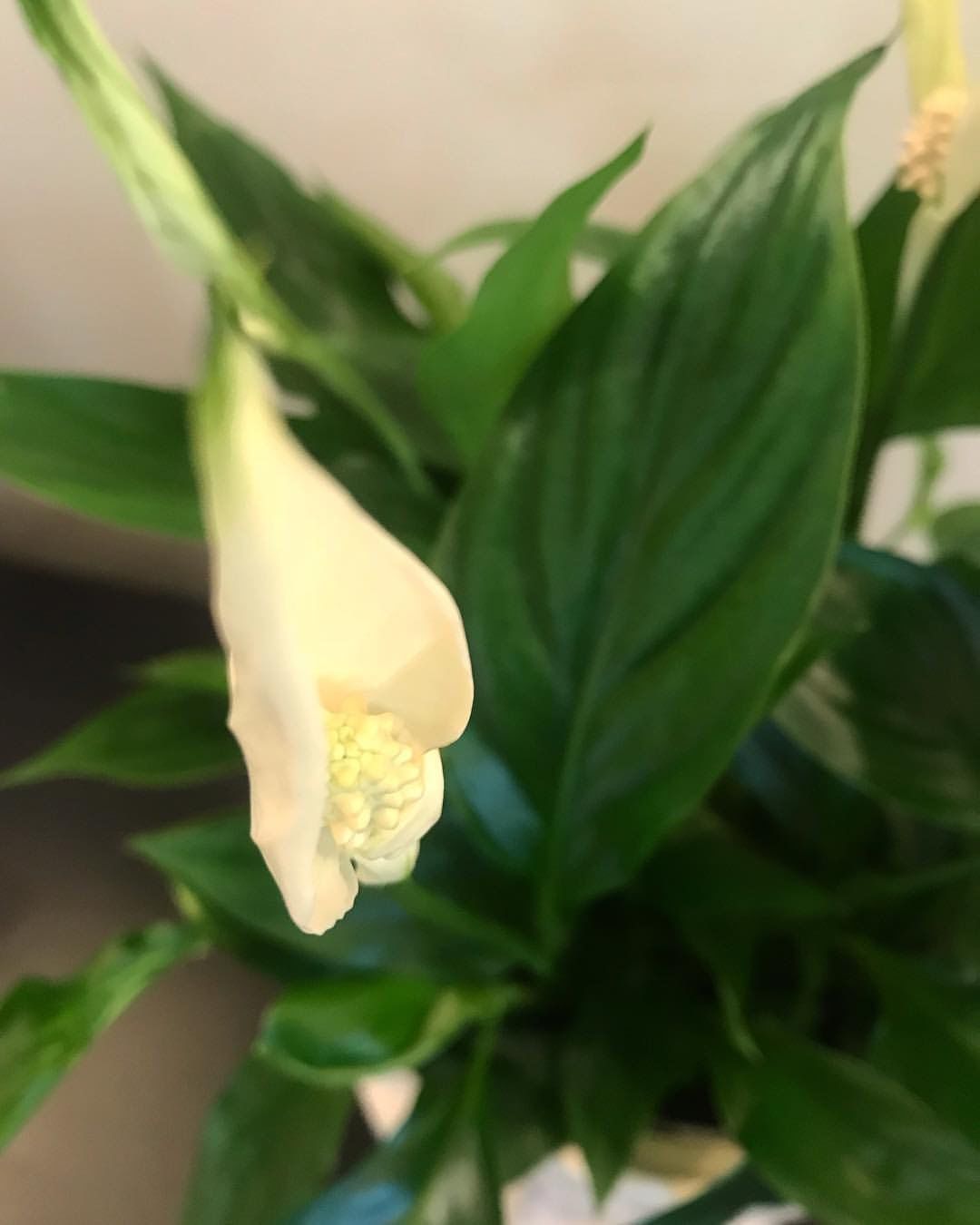 Spathiphyllum 'Chopin'
Spathiphyllum 'Chopin'
• Air Purifying
• Perennial With Long-Lasting Flowers
• Life Expectancy & Spread - 10 years, up to 1m in height & 0.6m in width.
Peace Lilies are ukhouseplants' go-to for a shady statement plant. Not only will they produce several new leaves per year, but they'll also reward you with flowers that can last up to a month! Maintain evenly moist soil by allowing the top third to dry out in-between waters for the best results.
2. Devil's Ivy (Pothos, Scindapsus or Epipremnum)
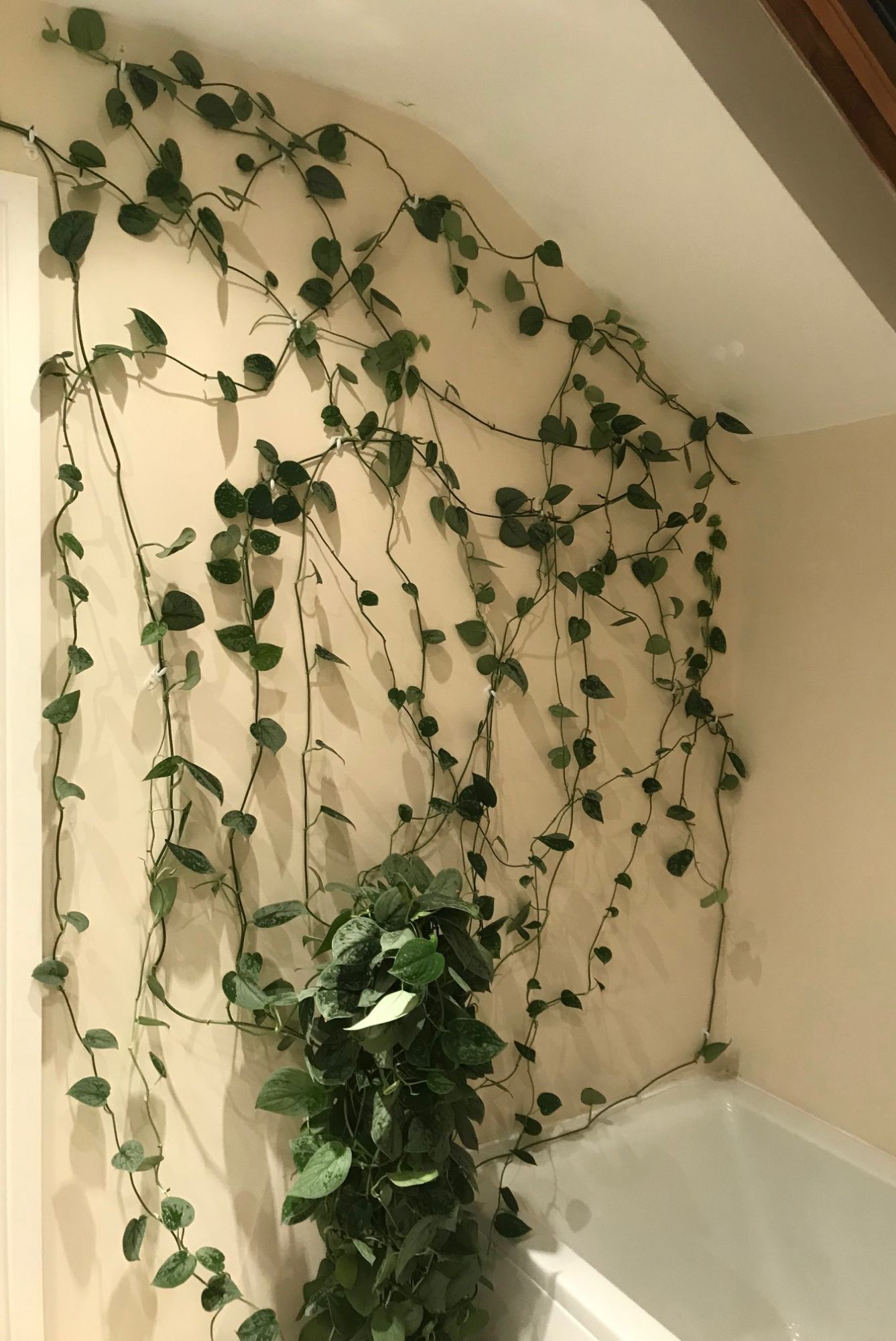 Epipremnum pictus 'Silver Satin'
Epipremnum pictus 'Silver Satin'
• The ukhouseplants' go-to for Trailing / Vine Plants
• Exceptionally Easy to Maintain & Propagate
• Life Expectancy & Spread - 10 years & up to 8m in vine length.
They'll grow exceptionally quick over the course of the year, regardless of light levels. The pictured above grows an average 40cm a year and requires very little maintenance or special care! Click here to learn more about Devil's Ivy.
3. Sansevieria (All Species)
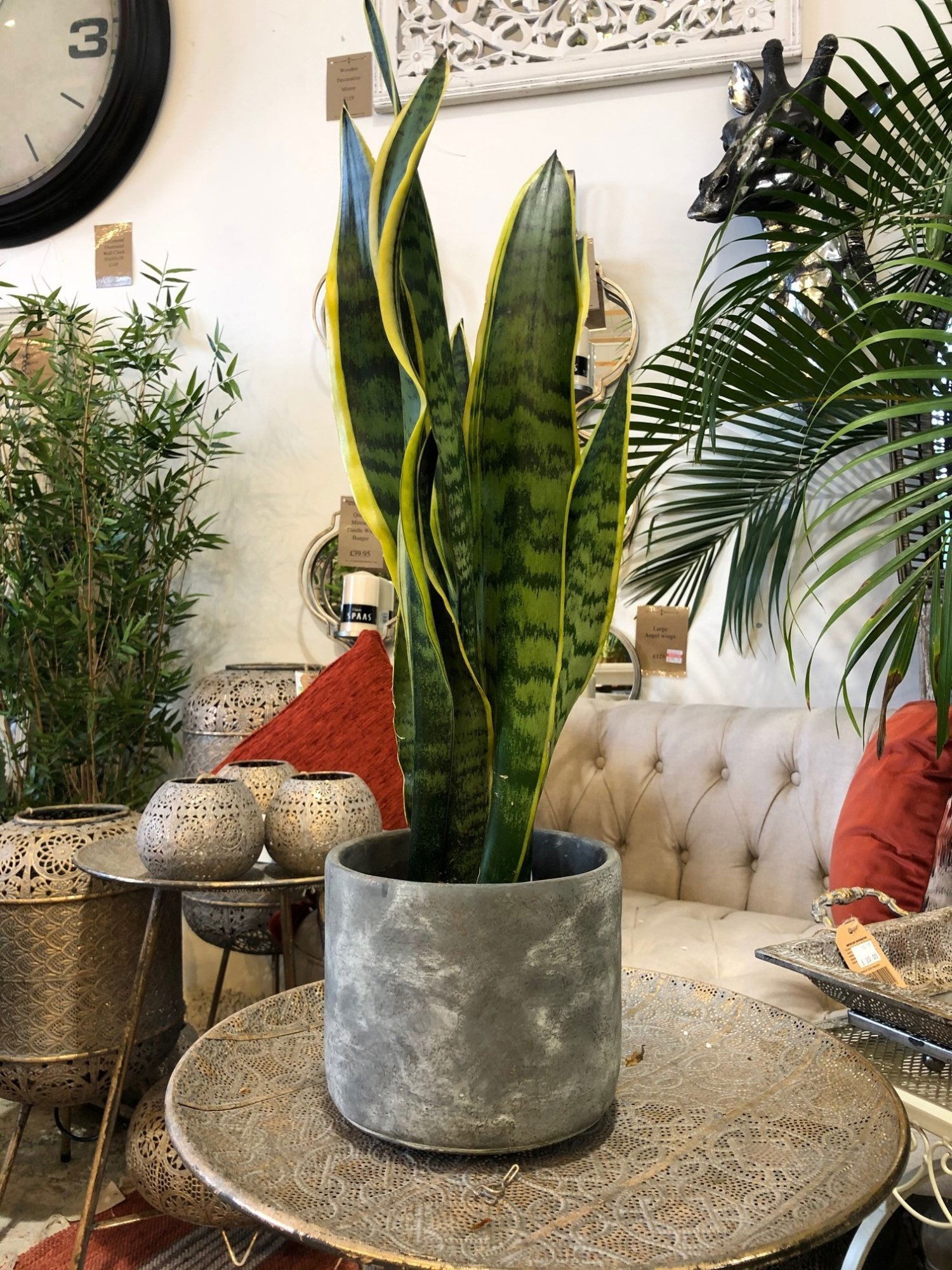 Sansevieria trifisciata - Mother-in-Law's Tongue
Sansevieria trifisciata - Mother-in-Law's Tongue
• Hard to Kill & Air Purifying
• Easily Propagated via Leaf Cuttings
• Life Expectancy & Spread - 15 years, up to 1m in height & 5m in width.
Sansevieria have been cultivated in houses for over two hundred years, since its discovery in the mid 17th century. The combination of its drought-tolerance and ability to endure most light levels makes this genus one of the best for beginners and shady corners combined. Maintain the ukhouseplants phrase of 'drenches between droughts' with periodic fertilisations to maintain a happy specimen!
4. Cast Iron Plant - Aspidistra
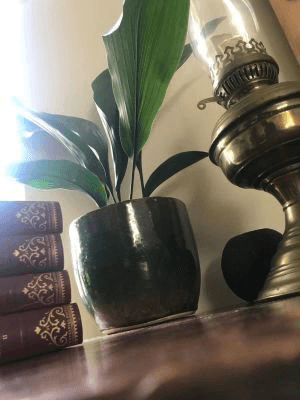 Aspidistra elatior
Aspidistra elatior
• A Superb Medium-Sized Statement Plant with a great Victorian history.
• Air Purifying & Pet-Friendly
• Life Expectancy & Spread - 8 years, up to 0.6m in height & 1m in width.
Aspidistras are a joy to own. Not only do they have a rich history that spans over 150 years, but their low-growing nature makes them a great plant to have on a mantlepiece or cabinet. Dust the leaves regularly and maintain evenly moist soil for best results.
We've just opened our online shop!
Want to buy top quality products with FREE Delivery? Click here to view our new store, including everything from premium indoor potting mixes to moss pole hooks.
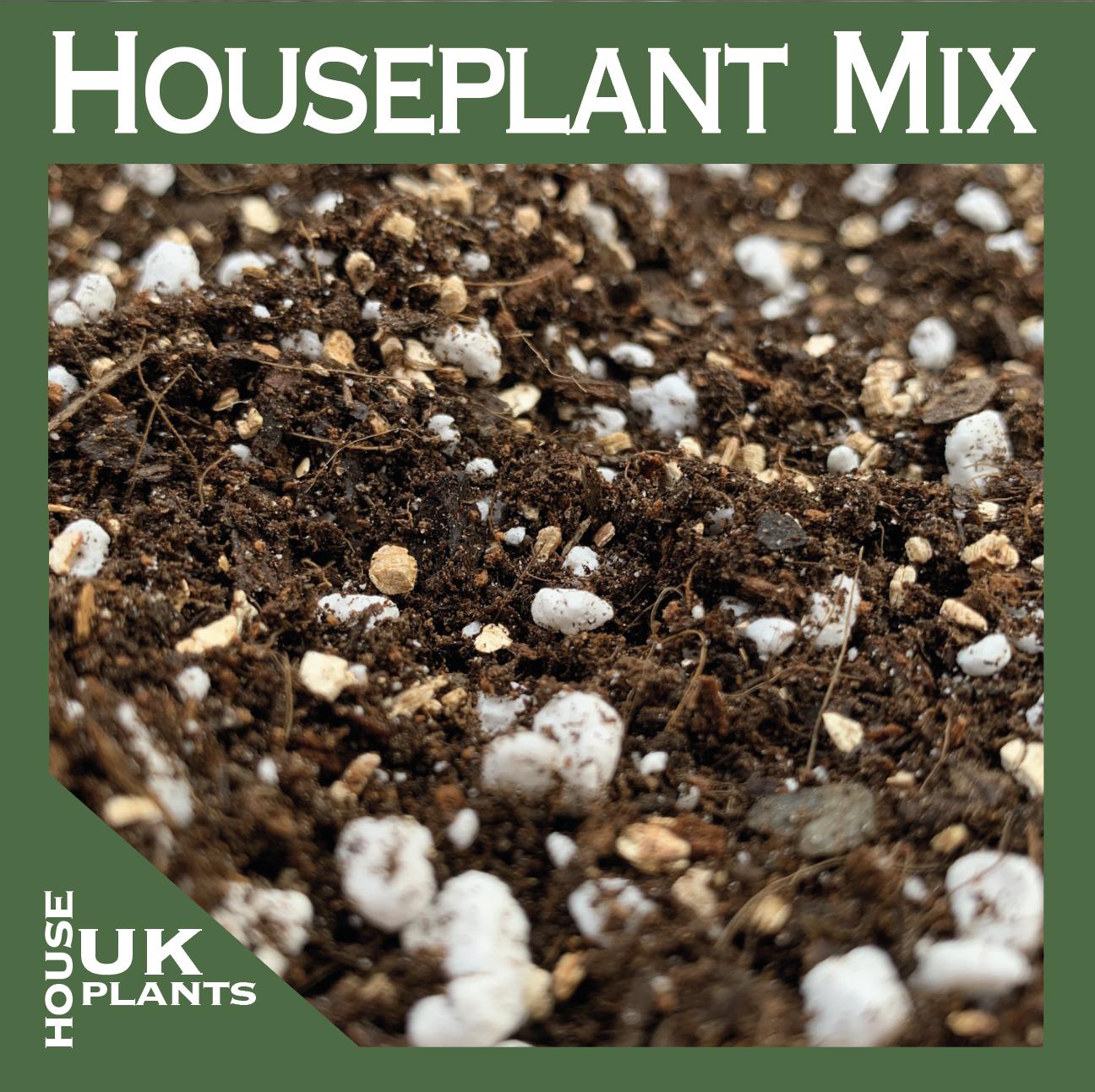
'Houseplant Potting Mix'. £4.95 + FREE Delivery!
5. Jewel Orchids - Ludisia
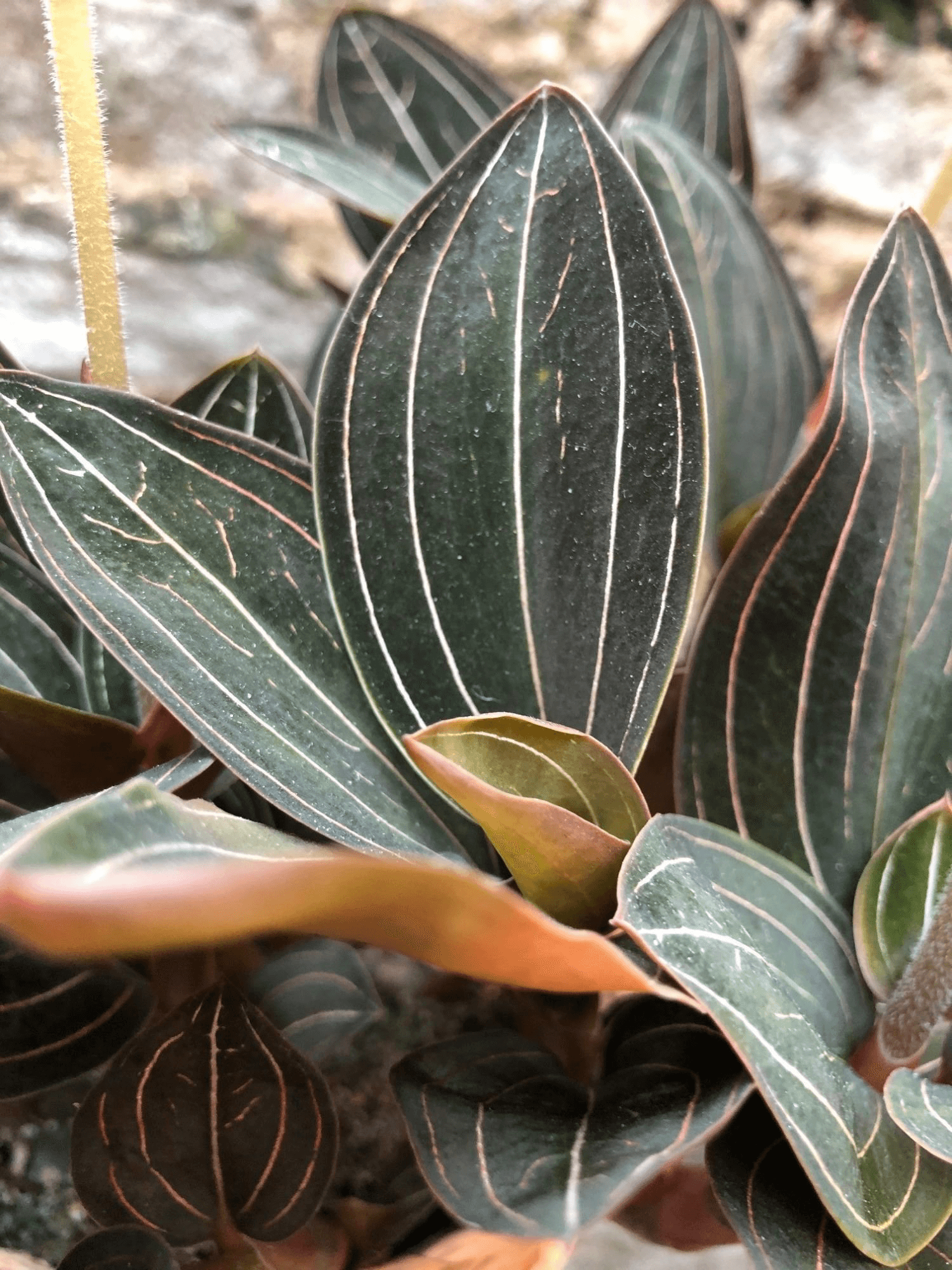 Ludisia discolor
Ludisia discolor
• Pet-Friendly & Great for Dark Locations
• Beautiful Intricacy of its Foliage
• Life Expectancy & Spread - 8 years, up to 0.3m in height & the width of its pot.
Renowned for its long-lasting flowers that stand the foliage line proudly, only a few realise that it forms part of the Orchid Family. Because of its dark tone and red undersides, the Jewel Orchid is a perfect example of a shade-tolerate flowering plant. In essence, the only issue is its availability in local garden centres...
6. Nerve Plants - Fittonia (Genus)
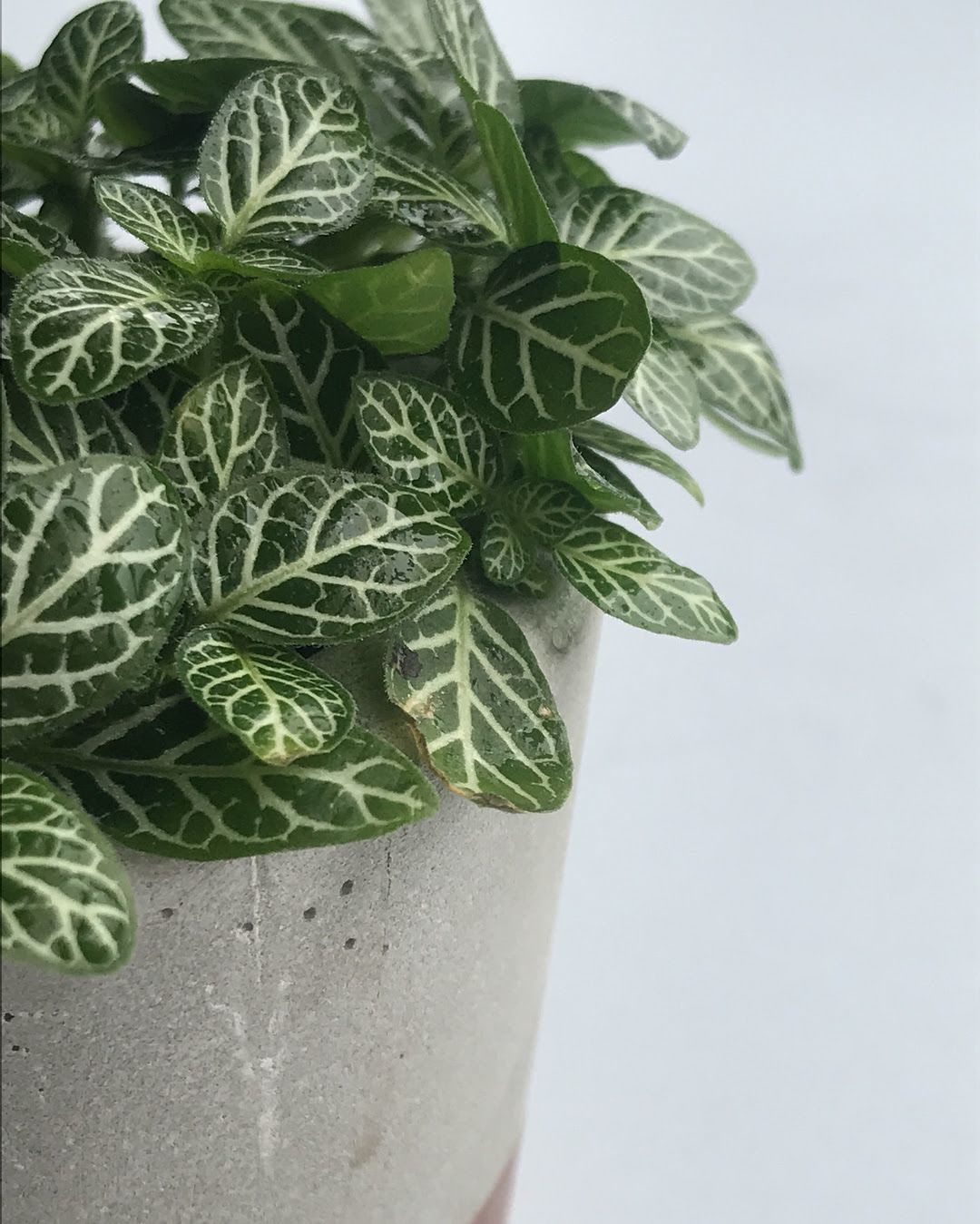 Fittonia albivenis Argyroneura
Fittonia albivenis Argyroneura
• Pet-Friendly
• Beautiful Ovular Foliage
• Life Expectancy & Spread - 7 years, up to 0.2m in height & the width of its pot.
Nerve Plants are definitely one of ukhouseplants' favourite low-growing plants. Coupled with its beautiful vein-like foliage and easy-care antics, a Nerve Plant can do surprisingly well in a shady location. Maintain good soil moisture and be sure to keep on top of fertilisations to get the most out of your specimen!
7. Spider Plants
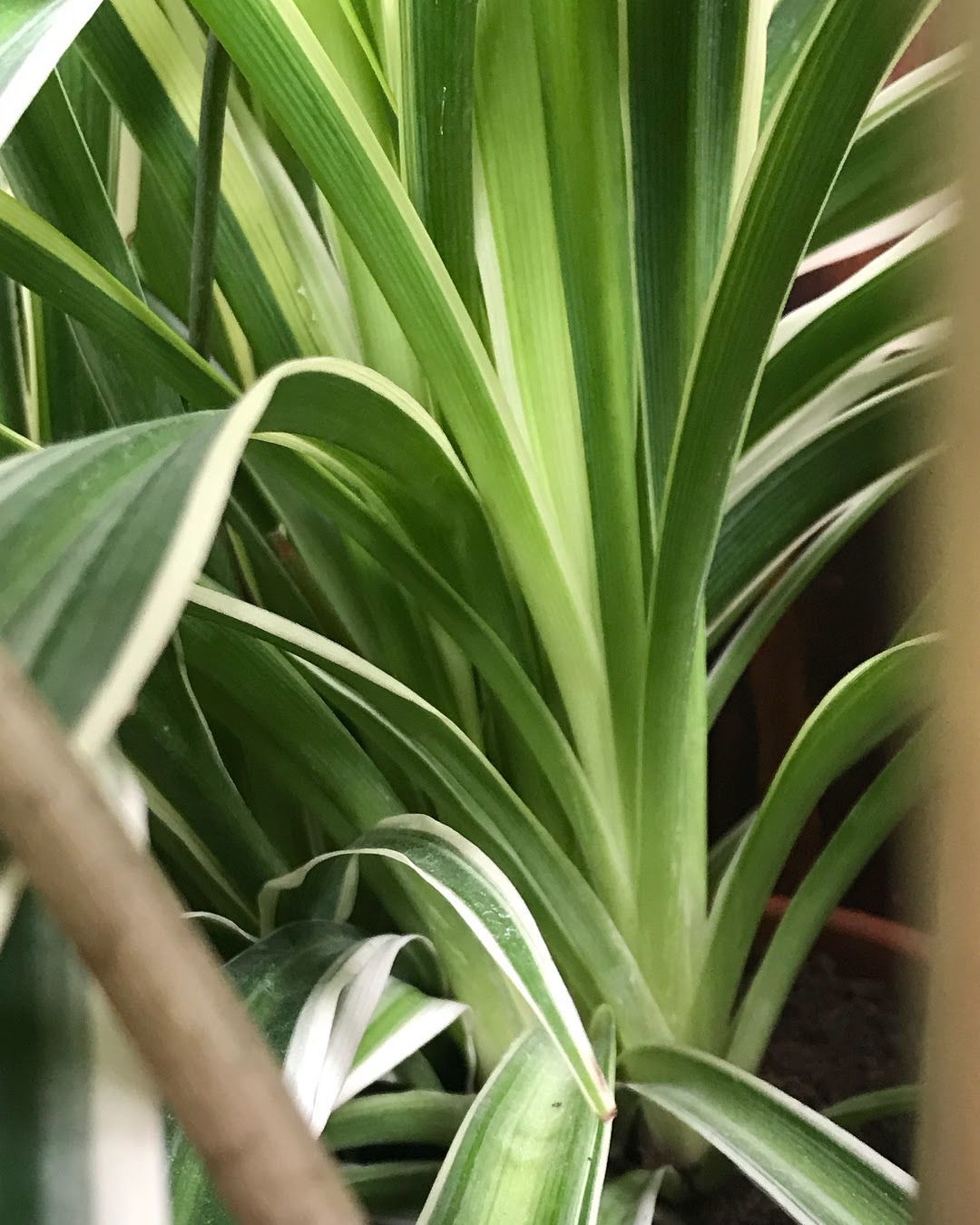 Chlorophytum comosum
Chlorophytum comosum
• Pet-Friendly & Air Purifying
• Easy to Propagate & Cheap
• Life Expectancy & Spread - 8 years, 0.7m in both height & width
Spider Plants are fantastic to have around your home for many reasons. Not only are they pet-friendly AND air purifying, but they'll also reward you with 'spiderettes' that develop along a stolon (runner). Within a few months of development, you'll be able to separate and root your very own baby, starting of its own family soon after. Water once the top third of the soil becomes dry, feeling the pot's weight for confirmation and perform regular fertilisations with a 'Houseplant' labelled fertiliser to fuel its glossy foliage.
8. Schlumbergera (Genus)- Xmas / Easter / Thanksgiving / Holiday / Zygo Cactus
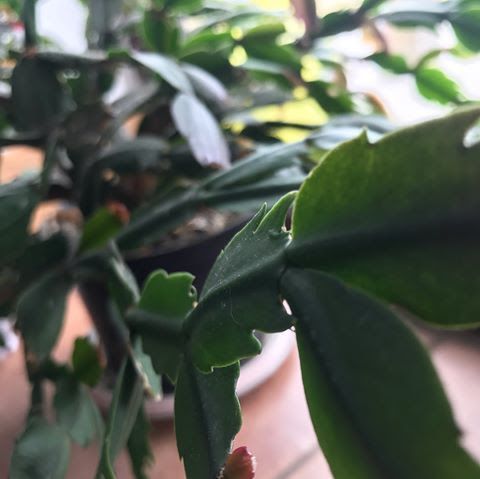 Schlumbergera truncata - Thanksgiving Cactus
Schlumbergera truncata - Thanksgiving Cactus
• A Great Investment in Terms of Overall Age
• Annual Blooms, Easy to Propagate & Pet-Friendly
• Life Expectancy & Spread - 30 years, up to 0.5m in height & 0.7m in width.
All forms of Tropical or Epiphytic plants are friends for life, especially Schlumbergera; they're great in a wide range of different indirect light levels and are incredibly easy to cultivate. Most specimens are available at a garden centre during their allocated flowering times - and relatively cheap, too. Allow the soil's top half to dry out in between waters, rinsing the foliage once a month to remove any fallen dust particles.
9. Parlour Palms
• Pet-Friendly & Air Purifying
• Easy to Cultivate
• Life Expectancy & Spread - 10 years, up to 0.6m in height & 0.8m in width.
Although there's a stigma around palms being a great example of a shade-tolerate plant, ukhouseplants wouldn't go that far. Most species can be tricky to care for, as their dried leaf-tips and browning fronds are an all too-common sight. Parlour Palms, however, are the only exception; they're great for a beginner and use in shady areas, and with a cheap price tag there's nothing to dislike about them!
10. Calathea, Ctenanthe, Maranta & Stromanthe - Living or Prayer Plants
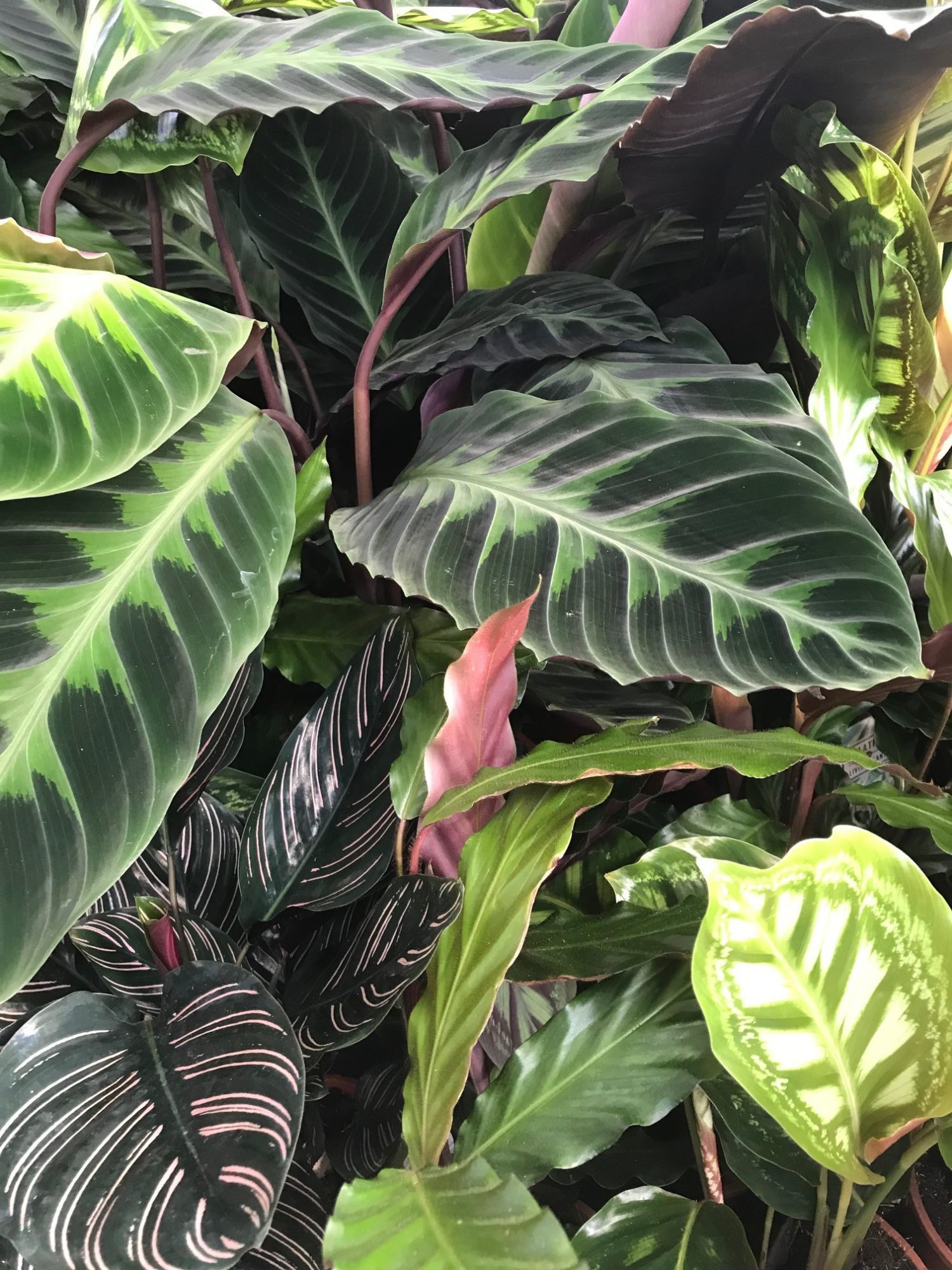
• Pet-Friendly & Air Purifying
• Beautiful Foliage with Red Undersides
• Life Expectancy & Spread - 10 years, up to 1m in height & 0.9m in width.
We have to save the best until last. Prayer Plants are a delight to have in any plant collection, due to hundreds of reasons. They're highly beneficial for our health as they'll remove airborne toxins like Benzene and Formaldehyde from the surrounding environment. They're also nyctinastic, where the leaves fold up at night into a 'praying' position to protect themselves from herbivorous predators.
So, if you're looking for a pet-friendly, air-purifying houseplant that has an incredible appearance with odd behaviours at night, this is the one for you!
3. Other Low Light Plants
Plants in bold are pet-friendly.
- Aglaonema - Chinese Evergreen
- Baby Tears - Soleirolia or Helexine
- Bromeliads - Aechmea, Billbergia, Bromelia, Cryptanthus, Guzmania, Helicodea & Vrisea
- Devil's Ivy - Epipremnum, Scindapsus or Pothos
- Dracaena - Dragon Tree, Corn Plants & Lucky Bamboo
- English or Common Ivy - Hedera
- Fatsia japonica
- Ferns - Boston (Nephrolepis), Blechnum, Dryopteris, Maidenhair (Adiantum) & Rabbit Foot Ferns
- Maidenhair Vines - Meuhlenbeckia
- Monstera - M. deliciosa, M. adansonii, M. obliqua & M. minima (Rhaphidophora tetrasperma)
- Palms - Parlour, Areca, Fishtail*, Lady & Kentia Palms. *Not Pet-Friendly
- Philodendron
- Senecio cephalophorus
- Tradescantia - Inch Plants
- Tropical Cacti - Disocactus, Epiphyllum Hatiora, Hylocereus, Rhipsalis, etc.
- ZZ Plants
Book a 1-to-1 Consultation with THE HOUSEPLANT DOCTOR™
Need realtime advice for your houseplants? Book a video or message consultation with expert Joe Bagley, THE HOUSEPLANT DOCTOR™ (author or ukhouseplants.com). Choose between a ten or thirty-minute session & a platform of your choice (WhatsApp, FaceTime, Facebook Messenger or Zoom). Ask unlimited questions in one session, including queries on your dying/challenging plants, pests eradication, terrariums, repotting advice & everything in between! Available worldwide.
